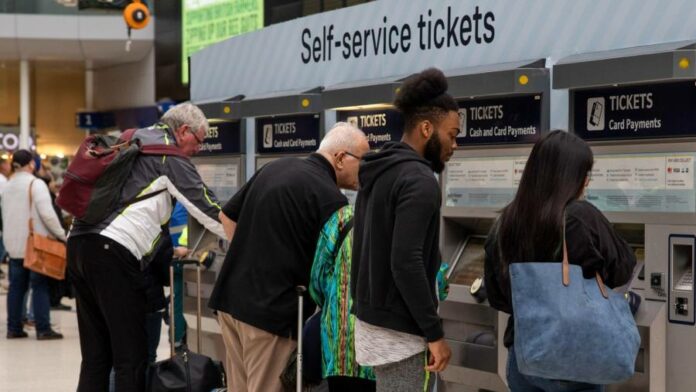Rail commuters in England will be hit by a nearly 6 per cent rise in ticket prices in March, even though ministers intervened to keep fare rises substantially below inflation.
The increase of up to 5.9 per cent will apply to all regulated rail fares in England, including commuter and many season tickets, and is the biggest jump in more than a decade. Other national governments in the UK set their own fare caps.
But with UK inflation currently running at 10.7 per cent, the figure still represents a substantial intervention by the government to keep ticket prices under control.
Fare increases are traditionally calculated using the retail price index for the previous July as a benchmark, which this year stood at 12.3 per cent.
Mark Harper, transport secretary, described the decision to keep fares well below this level as the “biggest ever government intervention in rail fares”. “This is a fair balance between the passengers who use our trains and the taxpayers who help pay for them,” he said on Thursday.
The government also delayed the increase for two months and it will take effect on March 5 instead of the beginning of the new year.
The government calculated the rise based on average earnings growth in July, instead of RPI. The decision followed detailed deliberations in Whitehall over how to plug some of the rail industry’s financial black hole without discouraging people from using trains.
Rail passenger revenues have fallen sharply since the pandemic led to a decline in the number of people regularly commuting into work. The industry made £164mn from season tickets in the three months between July and September, the most recent quarter where there is available data, according to the Office of Rail and Road, the industry regulator.
This is just 29.4 per cent of the £556mn earned three years before. There was also a sharp fall in the number of peak tickets sold, as more people timed their commutes to avoid the most expensive trains.
The government effectively nationalised the rail network during the pandemic, paying the industry’s costs and receiving its revenues, with private companies paid to run services.
Next year’s fare increase will not cover the inflationary pressures facing the industry, however, so train companies will need to find new ways of cutting costs. The Department for Transport has told train operators they will need to reduce spending in the financial year beginning in April, with budget cuts of more than 10 per cent being discussed with some companies.
Passenger groups welcomed the government’s decision to keep fare rises below inflation but warned that people hit by the soaring cost of living could still be put off travelling.
“We must be grateful for small mercies: it is clear that the increase could have been much worse. But this is still a large rise which will deter some people from using the railways,” said Norman Baker, of Campaign for Better Transport.
“This increase stands in stark contrast to the situation with fuel duty, which was cut earlier this year after being frozen for years,” he added.
“Capping fares below inflation and the delay until March is welcome and will go some way to easing the pain, but the need for reform of fares and ticketing in the longer-term must not be forgotten,” said David Sidebottom, director Transport Focus, an independent watchdog.
But Labour’s Louise Haigh, the shadow transport secretary, criticised the decision to raise fares when the industry has struggled to run normal services.
“This savage fare hike will be a sick joke for millions reliant on crumbling services,” she said.






